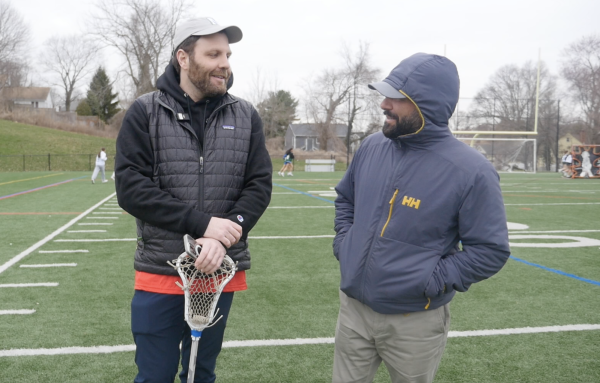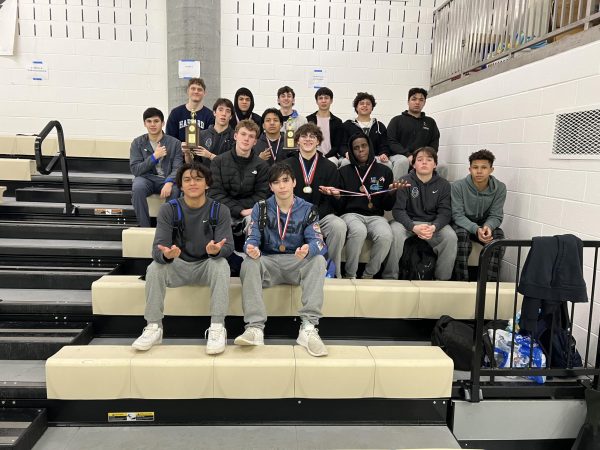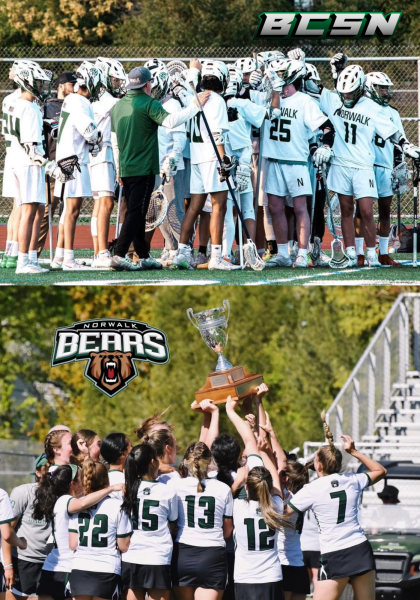Bridging The Gap
First Generation American Struggles
Norwalk High School is home to students from diverse backgrounds and cultures. Accepting to all, we see students who even recently entered the country, and this is their first experience of American education. An influx of students into Norwalk High School is even occurring as we speak, with Ukrainians who are seeking refuge in the U.S.
Many come to the U.S. to give their kids the best life, and in their hands they hold the American dream. First Generation Americans are the first of a generation to become a citizen in the U.S. This is a blessing in disguise because although you are given many opportunities this leaves you with the weight of carrying on the American dream from your immigrant parents. Growing up quickly, you carry big responsibilities that children shouldn’t have to worry about.
As soon as you learn to read you might be translating letters for your parents, or helping them complete important documents. Sometimes you have no idea what to do, and if you don’t know and can’t help your parents, who will? Always in search of success to validate your parents’ sacrifices, first generation Americans are even at a disadvantage in the American education system. Lacking a parent with college experience, you are more unlikely to get accepted into a good college or be able to afford it, as pew research states, “Some 70% of adults ages 22 to 59 with at least one parent who has a bachelor’s degree or more education have completed a bachelor’s degree themselves. Only 26% of their peers who do not have a college-educated parent have a bachelor’s degree”, but it’s not impossible.
Although my parents are hardworking individuals, they never even got a high school diploma. My dad was too poor to afford an education and my mother’s education was stopped due to her parents. They have always longed for my siblings and I to receive an education, and be exposed to the opportunities they didn’t have themselves in Mexico. They have built a life for my siblings and I, but that doesn’t mean we aren’t at a disadvantage being First Generation American. I have experienced the pressure, stress, mental health issues, identity crises’, and division with parents first hand since a very young age. As soon as I was able to read, I was reading documents for my parents and translating for them. As First Generation Americans, we have many disadvantages when it comes to receiving an education. Although all opportunities should be the same in our society today, they aren’t so First Generation Americans lag behind our peers.
Looking back on their childhood, many individuals recall sitting at a table, their parents trying to help them with their math homework. The parent yelling, the individual crying because they don’t understand. As a First Generation American my recollection was very different. Yes, I was sitting at a table asking for help, but my parents’ response was always “I don’t know. I didn’t learn that”. Due to my parents not receiving an extensive education,
I was forced to grow up very fast and be independent from a very young age. I sat at that table until I finally figured out what to do without the help of my parents. When I got questions wrong I was very hard on myself thinking I wasn’t good enough or capable to do anything. Behind the scenes my classmates were getting it right because they had the resources of their parents’ help, and even if my parents wanted to, they couldn’t help me. This set many negative mentalities at a very young age that I still struggle with today. For example, thinking I can’t ask for help and need to do everything on my own, and not handling feedback well.
Instead of my parents helping me with my education, I was educating them. As soon as I could read I was reading and translating documents for my parents so they could understand. My dad created a landscaping company, I remember being in my room and being called down to read a text a client sent him, and my dad asking me to respond back. I felt useful, but used at the same time, drained and tired. I should have been playing outside with friends, but a lot of the time I was being dragged places I didn’t want to be because I was needed. When translators weren’t available at my own school conferences I would translate the conversation between my own teacher and mom. If I ever didn’t know a word or just simply forgot I would always hear “Why do you even go to school then? Shouldn’t you be learning? You should know this.” This made my fear of failure escalate. At times my own parents were putting me down, and telling me to give up and stop trying. The only thing keeping me going was that I needed to make all my parents’ sacrifices worthwhile. I don’t blame my parents. No, First Generation Americans do. These are struggles that just come with the title.
First Generation Americans dealt with many struggles as kids in the education system, but they don’t end as we graduate high school. We will continue to face them. Even now as a sophomore, I think about college and I see how difficult this process will be for me. My parents will be of no help because they never went to college. My classmates on the contrary have parents that have gone through the application process and have been successful. They will know how to help their child, while I will need to figure it out on my own and be the guinea pig for my siblings. These individuals will have a better chance of getting into a college, getting degrees, and being successful. How can we fulfill the American Dream we inherited from our parents if the fact that they are immigrants will forever tie us down? If you make it as far as completing the application process and being accepted into a college, being a First Generation American ties you down in many ways. Due to your parent not attending college this usually means they have a lower income in comparison to those who attended college and have degrees, which is another disadvantage and problem that will need to be faced. One route many take to fund their education are loans, but with this comes student debt. First Generation Americans are more likely to incur indebtedness from their education in comparison to second generation Americans where funds are more viable.
Although sometimes it seems that the way the education system is built is praying for our downfall, it’s not impossible. The struggles we have endured from a very young age have provided us skills we wouldn’t learn until we were older, making us more resilient. Due to this many persevere and make it through college, fueled by fulfilling the American dream for their parents. This is one thing that will make us feel like we have accomplished in validating our parents’ sacrifices, but many will never be content, and will aim for a new goal to accomplish.

Miriam Garcia a sophomore at Norwalk High School. She is part of the girls swim and dive team, and is president of class of 2024. She enjoys listening...















